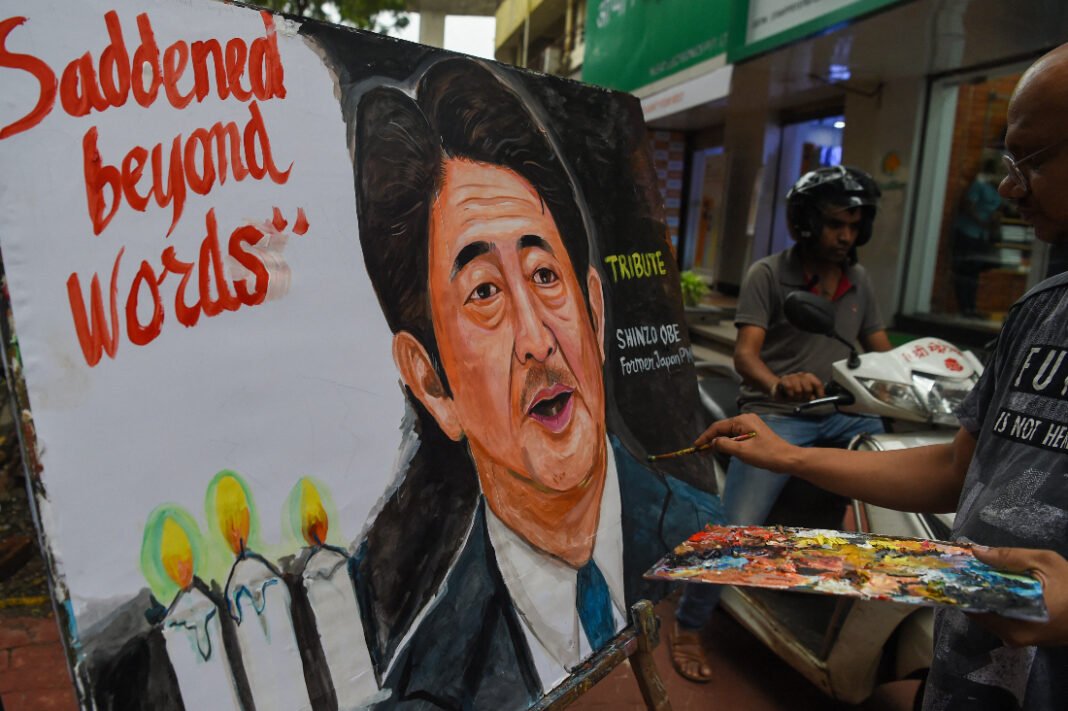NEW DELHI: India observed a day of national mourning on Saturday over the death of former Japanese Prime Minister Shinzo Abe, who was assassinated while giving a campaign speech a day earlier.
Abe, 67, Japan’s longest-serving prime minister, was pronounced dead on Friday evening after a gunman shot him in the western Japanese city of Nara.
His death prompted a flood of tributes from current and former world leaders, and anger that a politician could be gunned down in broad daylight in one of the world’s safest societies, where guns are strictly controlled.
Indian Prime Minister Narendra Modi took to social media to mourn Abe, whom he called one of his “dearest friends.” He tweeted: “I am shocked and saddened beyond words at the tragic demise.”
Abe was recognized in India for his role in strengthening bilateral ties and support for New Delhi’s role in the Indo-Pacific region.
He was also pivotal to the formation of the Quad, a strategic grouping comprising Australia, India, Japan and the US.
“Whole India mourns with Japan,” Modi tweeted. “We stand in solidarity with our Japanese brothers and sisters in this difficult moment.”
Modi, who declared July 9 a day of mourning following confirmation of Abe’s death, said the Japanese leader made an “immense contribution” in elevating bilateral relations.
Abe’s efforts in that regard were also recognized by other prominent figures in India, including Dr. Manmohan Singh, former prime minister and leader of the main opposition Congress Party.
“He was a good friend of mine. During my tenure as prime minister, we worked to raise both our countries’ ties to the level of a global and strategic partnership,” Singh said.
Abe, who had visited India four times while he was prime minister of Japan, was honored as chief guest during the Republic Day parade in 2014 and was given the Padma Vibhushan, India’s second-highest civilian award, in 2021.
He played a key role in the India-Japan civilian nuclear pact. Reached in 2016, it marked the first time that Japan, the only country to have suffered a nuclear attack, concluded such an accord with a nation that is not a signatory of the Nuclear Non-Proliferation Treaty.
“Shinzo Abe was a futuristic person who believed in harnessing the immense potential in the bilateral relationship between India and Japan. The civil nuclear agreement was the by-product of that belief,” Dr. Swasti Rao of the Institute of Defence Studies and Analysis, a New Delhi-based think tank, told Arab News.
He said Abe had considered India as Japan’s “natural partner,” not only in terms of countering China’s growing influence and assertion in Asia, but also through proximities in culture, civilization and their democratic systems.
“It’s like the passing of an era,” Rao said. “He was someone who loved India. It was not superficial, he was a true friend.”




